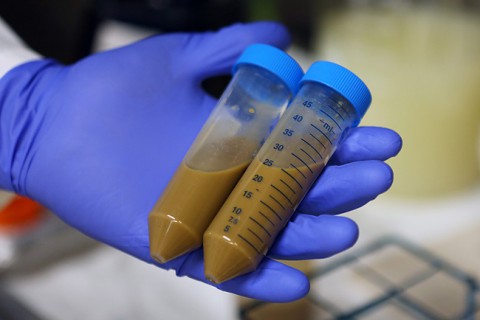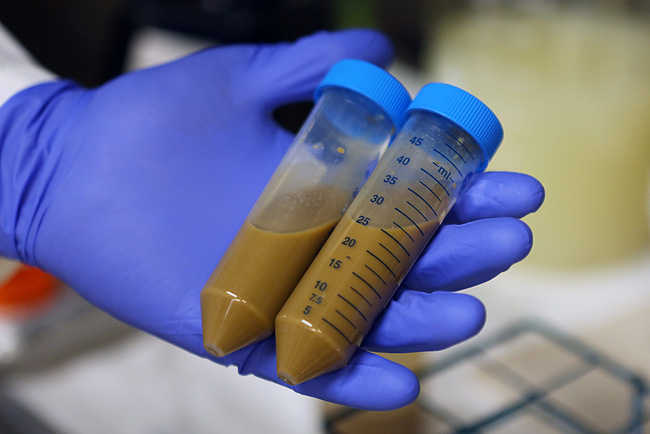 For decades, transplanting the intestinal microbial fauna from one person to another person has been used in Germany to treat ulcerative colitis and other chronic ailments. Several chronic diseases of the colon are thought to be influenced not only by genetics, but also by an imbalance of intestinal bacteria.
For decades, transplanting the intestinal microbial fauna from one person to another person has been used in Germany to treat ulcerative colitis and other chronic ailments. Several chronic diseases of the colon are thought to be influenced not only by genetics, but also by an imbalance of intestinal bacteria.
Intestinal bacteria are responsible for a large part of the body’s ability to break down nutrients in foods. Aside from chronic illness, several rounds of heavy antibiotics can also wipe out the effective balance of intestinal bacteria, making a person very ill with dehydrating diarrhea and virtually no possible nutrient absorption.
In the United States, the FDA is loosening restrictions on fecal transplants, particularly those given to patients suffering with an infection of another bacterium strain named, Clostridium difficile, or C. diff. which can take over when the body’s normal microbial ecosystem is thrown out of whack. If a patient is accidentally exposed to C. diff., a healthy balance of bacteria and a strong immune system would thwart infection. In the elderly, those with a compromised immune system or people who have been on prolonged courses of antibiotics, C. diff. is particularly hard to treat. According the Centers for Disease Control and Prevention (CDC), approximately 14,000 Americans die from C. diff. every year.
The fecal transplant procedure involves flushing out the patient’s intestines and colon, similar to the preparation for procedures like a colonoscopy. Then doctors take a stool sample from a healthy donor, dilute the sample and place it in the person’s intestinal tract. Doctors reporting findings to the FDA indicated that over 81% of the people given the transfusion as treatment for C. diff. were cured after just one transfusion.
The FDA has voiced concern that only trained physicians should give the treatment for approved reasons only and that training is necessary to prevent nicking the intestinal or colon wall. Regulatory guidelines are ongoing. As doctors and scientists better understand the role of the microbial synergy to human digestion and nutrient absorption, additional justification for fecal transplants will most likely develop.
This is just one example of how the field of health care is constantly evolving with new technologies and other human innovations. Strong critical-thinking and creative problem-solving skills led to this unconventional, yet life-saving procedure. As the population continues to age and technology provides additional problem-solving tools, astute professionals are needed to grow with the industry and meet the challenges of an ever-changing professional landscape.
For more information about the most in-demand skills in healthcare, see: http://www.scientificamerican.com/article.cfm?id=fda-comes-to-grips-with-fecal-transplants









